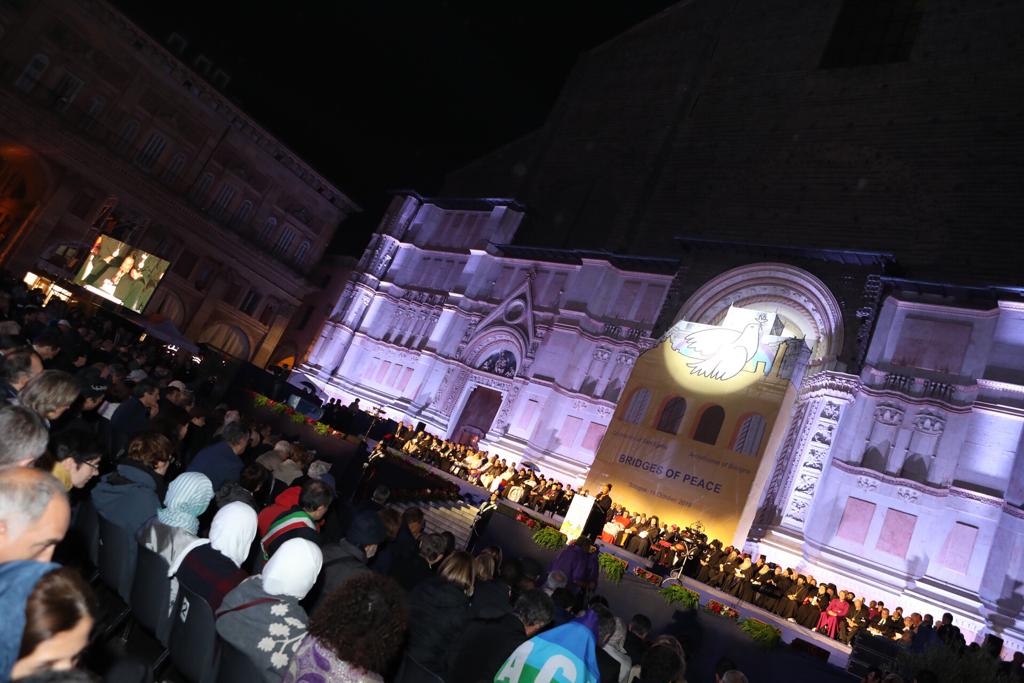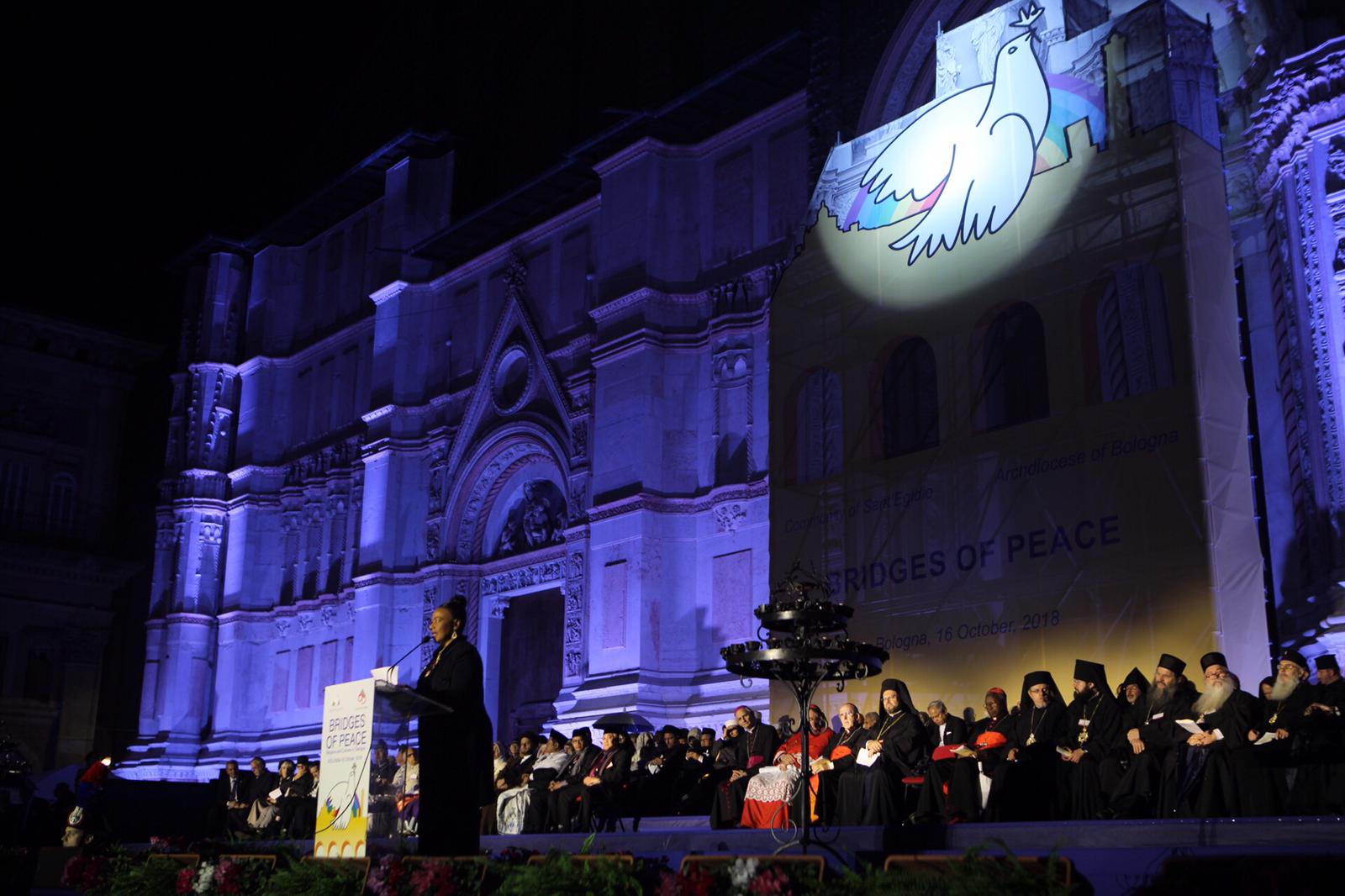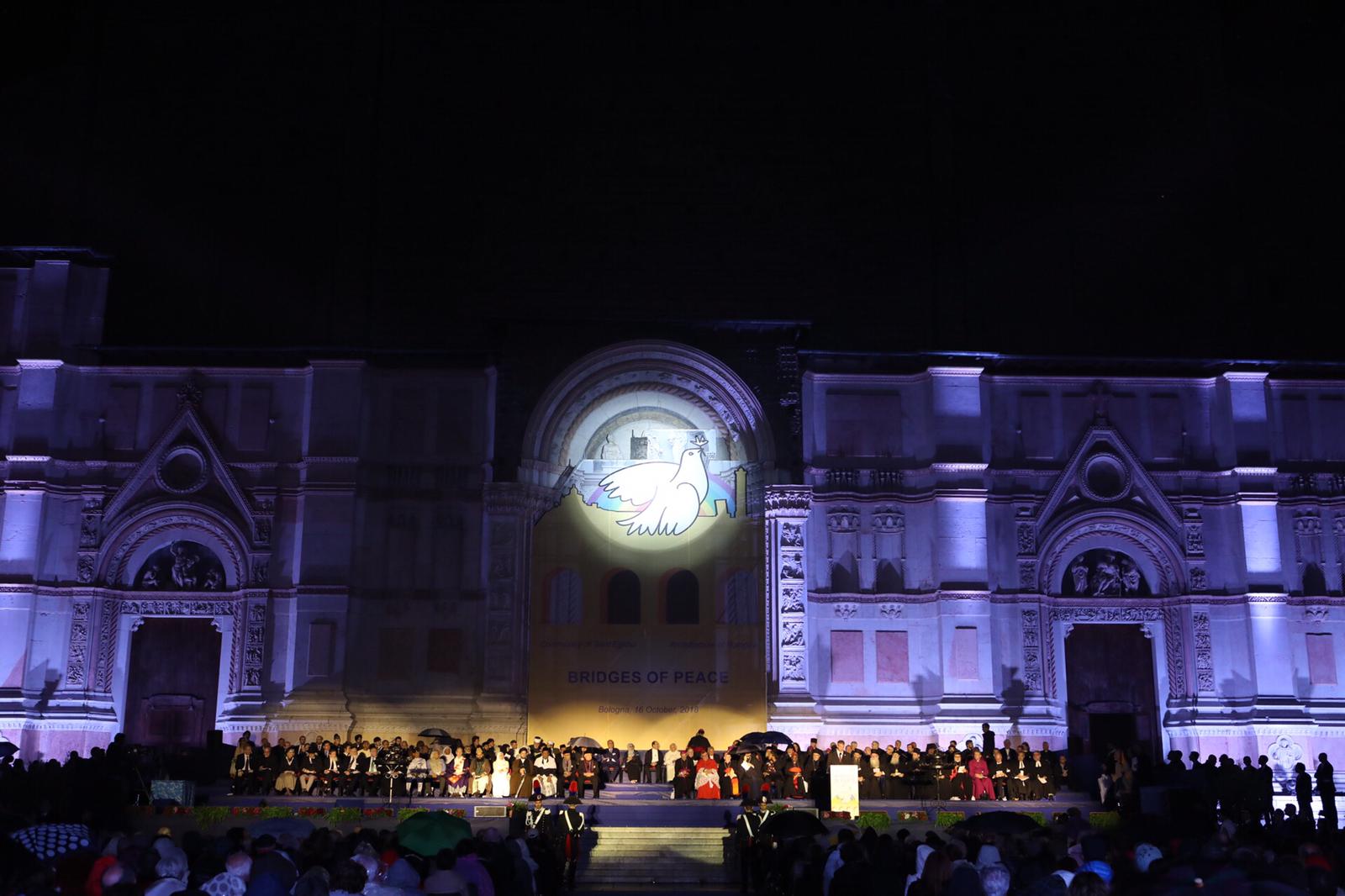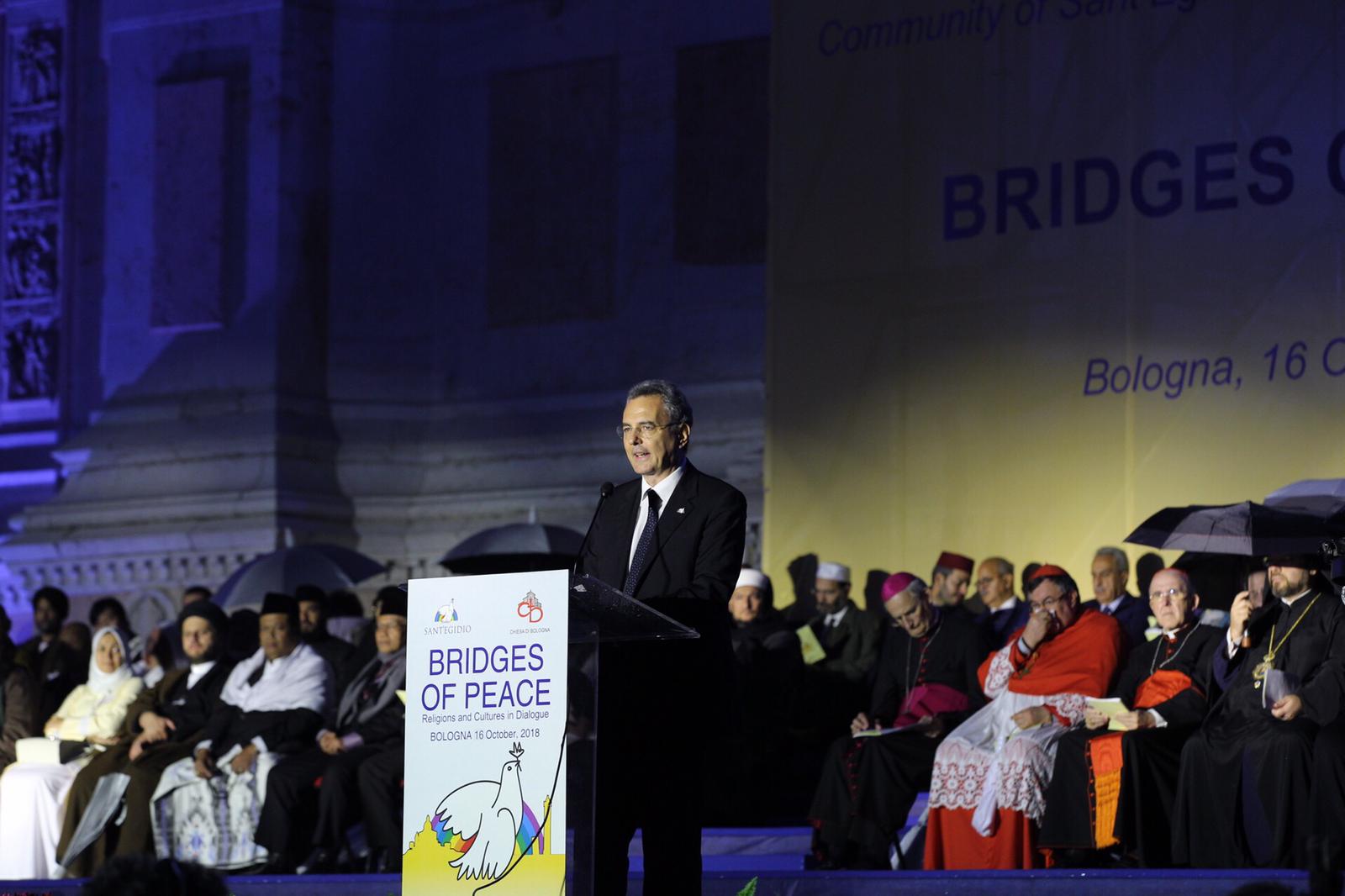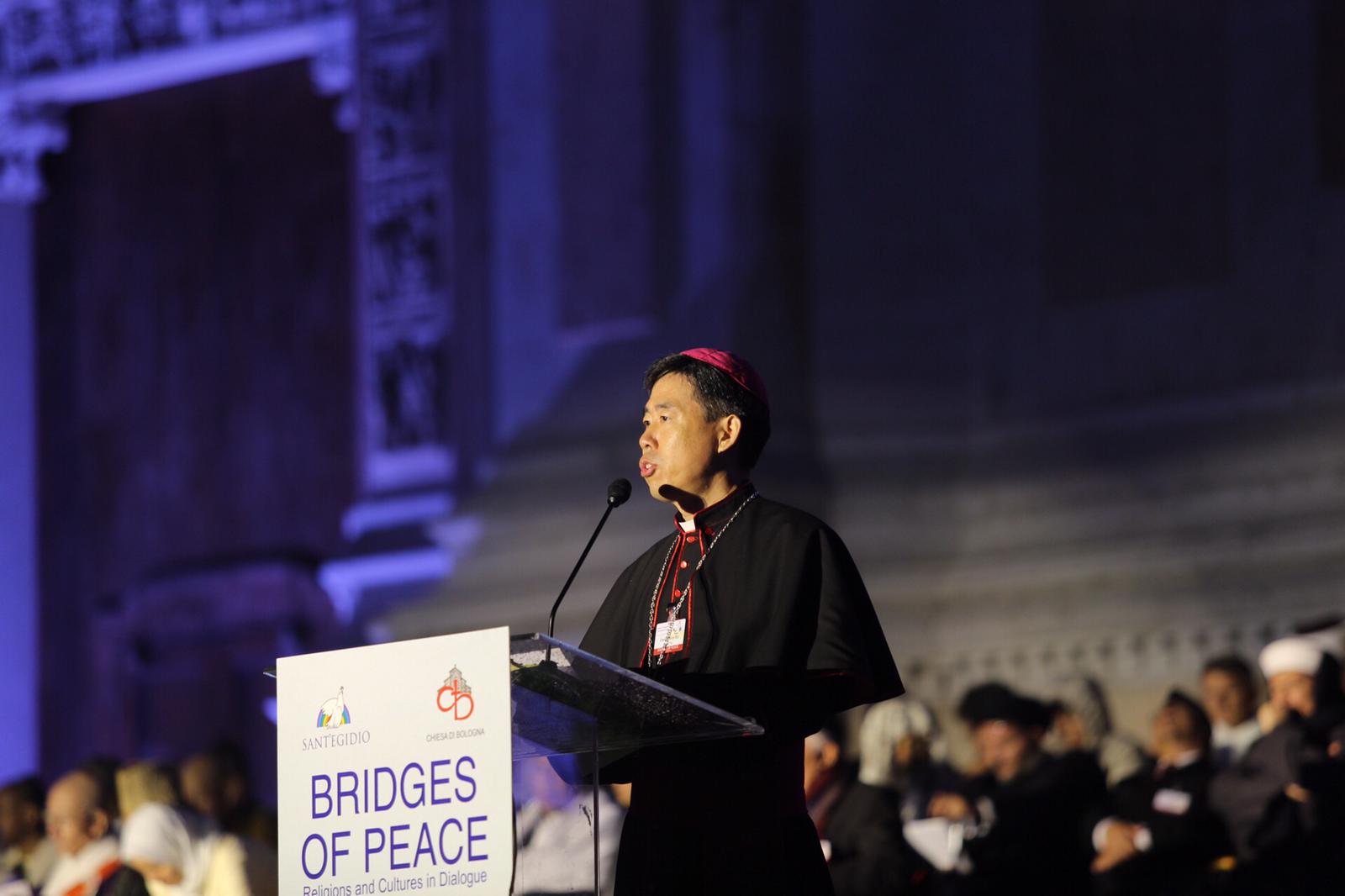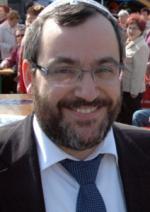
Dialogue and not monologue that is our greatest wish and challenge in the relationship between the religions. Not the conviction of each other is crucial here. The explanation and the enlightenment is still our goal. Get to know each other and take down the curtains. To reduce fears and make friends.
I was born in Jerusalem. A city that is important to all of us. A city that we all share . Jews, Christians and Muslims are feeling at home in this city. Jews, Christians and Muslims meet each other every day in this city. Be it the regulation of everyday needs or the realization of one's own religious spirituality. There is a need to get to know each other and to talk to each other every day.
The roots of my family and my wife's family are very different. My father-in-law s.A was born in Afghanistan. My grandfather was born in Syria. The other grandparents are from Germany, Hungary and Romania. The Shoa is part of the story of our family. Two hands are not enough to count the close relatives who were murdered in the Shoa.
Dialogue is always connected with place, person and history. I have been in Germany for 17 years with my wife and 7 children. We are there because we want to support the existence of the Jewish Community in Germany and we are happy to be a part of this process.
Germany is a place where the dialogue has experienced ebb and flow. Hundreds of years of experience of fruitful Neighborhood up to the terrible experience of the Shoa, which almost put an end to Jewish life in Germany. The dialogue between the Christian and the Jewish society in Germany was and is the key to the common life today in Germany. No matter how society secularizes, it is still very much rooted in the Christianity.
Dialogue and not monologue. For many years two groups had to live with each other: One had the role of the victim with all the physical and psychological side effects, and the other the burden of the offender with a responsibility to the present and the future to carry on their shoulders, what is not easy. The despair and the doubt of the victims whether it is still possible to communicate with each other and the high level of cautiousness and sensitivity of the offenders side can disrupt and block an honest dialogue. Only a reticent dialogue is possible in which you can not talk openly.
Nonetheless, we have made it. There is dialogue on all dialogue levels. Schoolchildren learn about each other and visit the synagogues. Communities try to invite each other and join cultural events. .
The dialogue on theological level. The basis for dialogue lies in theology. Some say that it can not come to an agreement and that prevents dialogue. But we are looking for understanding and not consent. We want to be heard and to hear.
Rabbis and Christian theologians meet very often and discuss theology and everyday life with each other. For years, the Orthodox Rabbi Conference and the Bishop Conference have been holding firm talks to establish closeness and understanding. The attempt in Germany the Brit Mila to ban circumcision was rejected with the help of the Episcopal Conference and our dear friend and the friend of the community Sant Egidio Mr Bishop Mussinghoff.
The New Wave of Refugees has brought us a new and difficult challenge. .Public anti-Semitism has increased significantly. The Christian-Jewish Dialogue welcomes everyone in Germany. But we have to insist that this must not change the climate in this country. The safety of each person according to his religious understanding must be not disturbed. The Christian-Jewish dialogue promotes respect and pluralism in all areas of life on the part of the New Residents of our country.
The dialogue depends on people. We are on a good way. We have found a common language that helps us solve problems and support each other. We became friends. Friends trust each other and find good ways to handle difficult situations.
The New Rabbis who were educated in Germany, the new generation of young people growing up in Germany, also the children of the New Members of our communities that have come since the 90th years from the CIS, are living and growing up with the feeling of a new understanding:
It is understood that we want to live together.
It is understood that we want to respect and get to know each other.
It is understood that there are still stumbling blocks on our common ground.
It is understood that we want to clean up and get them out of our way to create an even better future for future generations.
